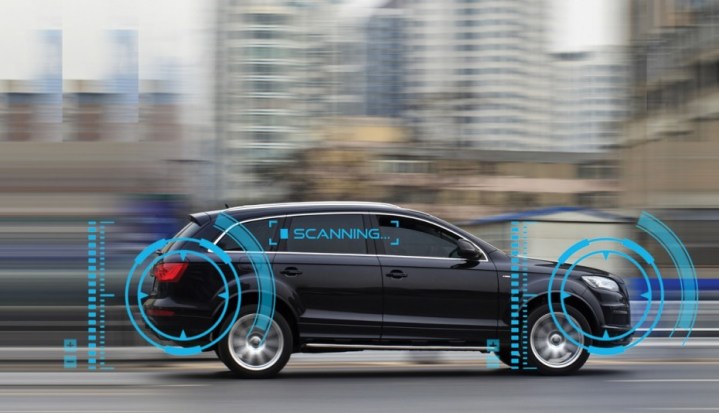
NXP currently supplies Advanced Driver Assistance Systems (ADAS) processors to eight of the top 10 carmakers. The company does not design software, but instead focuses on building and integrating the chips needed for autonomous vehicles.
The BlueBox engine can pull together input from radar, Lidar (laser), and vision sensors. It has secure V2X communications built in. V2X, sometimes called “vehicle to everything,” is the ability of vehicle systems to communicate with other vehicles and with infrastructure devices such as lane signals and alert systems such as traffic or accident warnings. V2X is not a closed concept, so communications with anything external to a car or truck that can talk to it has potential. NXP has chips for all these functions today, either shipping or in sampling stage right now, according to the company.
The overall goal is to provide an integrated system that can accept a wide range of signals and pull them all together in demanding automotive applications. Your car’s computers can’t be interrupted while taking a corner or require a reboot when you’re traveling at highway speed. Cars need processing power that provides both performance and safety. NXP’s role is to put together the necessary processing potential.
The BlueBox engine is a Linux-based open platform that lets carmakers or third-party software vendors build their own autonomous car applications. NXP has said that with this computing platform, a car manufacturer could bring cars to market around 2020.
Kurt Sievers, executive vice president of NXP’s automotive business, said, “Our systems-level expertise, deep understanding of complex ADAS engineering challenges, and broad portfolio of NXP products meeting automotive-grade functional-safety requirements, all position NXP as the definitive silicon provider capable of singlehandedly speeding the readiness and availability of the self-driving cars of tomorrow.”
Editors' Recommendations
- How a big blue van from 1986 paved the way for self-driving cars
- Uber gives up on developing its own self-driving car
- Waymo puts its self-driving cars back on Arizona roads as lockdown is eased
- Qualcomm Ride platform aims to make self-driving cars simpler
- Uber’s self-driving cars head to Dallas, but they’ll be driven in manual mode




